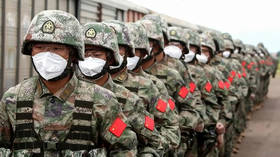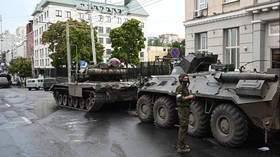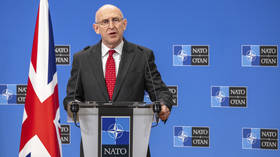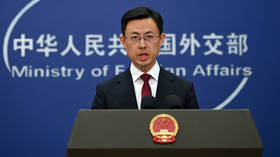Why rebellion in China isn’t going to happen

Since the Wagner ‘incident’ occurred and quickly resolved itself in Russia in late June, Western pundits have been projecting hypothetical doomsday scenarios for countries such as Iran and China.
With musings such as: ‘what if Wagner’s rebellion happened in China?’ or assertions that such an event would be ‘Xi’s nightmare’, they have been trying to force a narrative of political weakness on the opponents of the West, or ‘wishcasting’ disaster scenarios. Hence, every single setback China may face is projected as the hypothetical end of Xi Jinping.
However, the chances of a military-led rebellion in China are slim, as such theories misrepresent and underestimate how China’s political system works as a Marxist-Leninist one-party state. The reality is that in China, political power is tightly centralised and wide-reaching, and under Xi Jinping, it is a trend that is only consolidating.
China is ruled by the Communist Party (CPC), which has held power since Mao Zedong was victorious in the Civil War of 1949. This built a one-party state modelled on the structure of the Soviet Union, but also drew from the historical and institutional experience of Chinese bureaucracy in the process. Who else, after all, would manage the new Chinese states if not those that already had the experience to do so? The landlords were purged, but the bureaucrats survived. The Chinese state thus has multiple layers and levels of government, wherein there is no separation from the ‘party’ and the ‘bureaucracy’ itself, in contrast to the independent and non-partisan civil services of Western countries.
In such an arrangement, all decision-making power is fashioned on a strict hierarchical basis, which relays back, level by level, to the politburo and then within that group, its standing committee. The bureaucracies beneath them often span out into multiple, often overlapping portfolios, limiting their own institutional autonomy, and thus making them answerable to those above. Similarly and most critically, the Chinese People’s Liberation Army (PLA) is also an extension of the party, having preceded the state, and does not exist as an independent institution as seen in some other states. The Communist Party of China adheres to the Leninist principle of democratic centralism, and not a pluralist or federal model whereby different factions of the government may fight each other.
With this political system, the scope for political rebellion in China is sparse, and a focus on party unity, which follows Xi Jinping’s interpretation of its ideology, is heavily emphasized. While of course there are many political actors in the party with their own interests, agendas, and the like, from the top right down to the village level, this mode of organisation makes it difficult for a high-profile individual to arise and express ‘dissent’, and nigh on impossible for one to enforce his own will on the party as a whole. Given this, it is not possible or logical that China would create an autonomous private military contractor such as the Wagner Group, which could have its own sphere of influence with the hypothetical capability of rebelling against the state.
This does not just apply with military matters, but pretty much everything, which allows the party to control every organ of the state as it wishes. Hence because of this, China can construct infrastructure and high-speed railway lines at record speed, not just at home, but overseas. It can direct its banks to lend to any country that it wants instantly, it can coordinate the import and export of anything with state-owned companies, buying goods from countries it likes or prohibiting them from those it dislikes. The Communist Party mechanism of governance ultimately differs drastically from the US ‘separation of powers’ model, in which numerous levels of government and political actors spar against each other in dramatic fashion.
There is no perpetual strife, for example, between the Politburo and the legislative branch, the National People’s Congress (NPC), because the higher levels control their legislative agenda. Thus, neither is there any gridlock or paralysis against the system. In this case, the hypothetical speculation of rebellion against Xi, and obsession with the Wagner Group, is completely out of touch with how China governs, when in reality, its system is more stable and more coordinated than any of its counterparts. The West, of course, is as desperate to see China fail as it is with Russia, but it just isn’t going to happen.
The statements, views and opinions expressed in this column are solely those of the author and do not necessarily represent those of RT.














